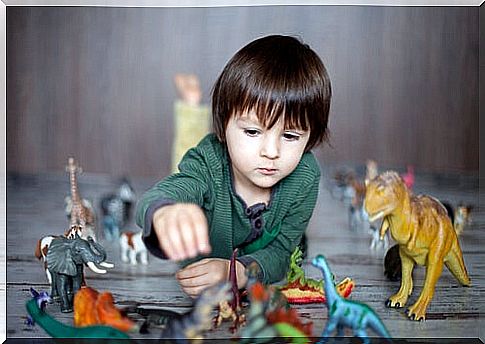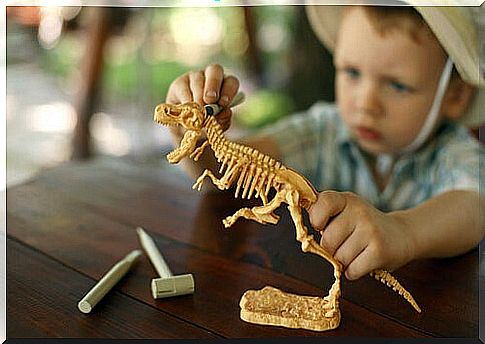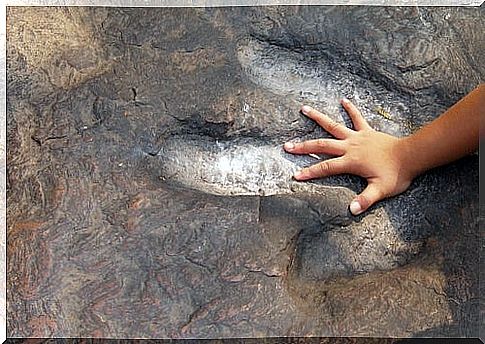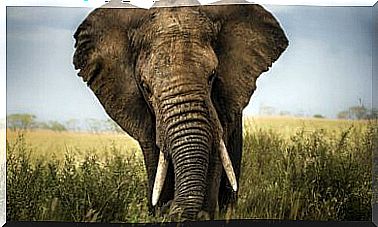Why Do Children Like Dinosaurs?

From diplodocus, triceratops to velociraptors or tyrannosaurs rex. Whatever spice it is, in some way, dinosaurs attract the attention of the little ones (and many adults too). In fact, it is likely that you also liked them during your childhood or perhaps one of your friends was a great fan of dinosaurs … Now, what is it about these types of animals that are so attractive?
The devotion to dinosaurs that many children experience is more than just a hobby. They know the scientific name of different species, despite being rare, they know what they ate and where they used to be or what their peculiarities were. Their interest is even so great that they are able to distinguish the different geological eras by the type of dinosaurs that inhabited them. Incredible true? But why do children like dinosaurs?
Let’s see the reasons why these animals attract the attention of the little ones and what you can tell us about it. Let’s go deeper.
Passion and curiosity: the importance of intense interests
From psychology, a concept known as intense interests is used to refer to the preference, motivation or passion on the part of children for very specific objects, activities or topics. This phenomenon usually develops at a very young age and, in addition, it is usually more common in boys than in girls.
Now, intense interests do not consist of a general and passing taste for a particular object such as a costume, a toy airplane, or dinosaurs in this case. Rather, they are characterized by the experimentation of a certain attraction, with large doses of passion, towards that object.
It is as if children feel an inordinate curiosity to know everything about something very specific. In some cases, this attraction can even have certain obsessive traits. Thus, these types of interests usually have a series of common characteristics:
- They are usually relatively durable. It does not fade in a matter of hours or days.
- They focus on different objects with similar characteristics or traits in common.
- They favor a conceptual mastery on that particular topic.

Parents usually identify this type of behavior in their children quickly, since children as soon as something related to their topic of interest appears, they immediately want to investigate and deepen on it. For example, they ask multiple questions to find out more, they look for information that is within their reach to satisfy that kind of intellectual curiosity or once they have gathered enough information and have learned something new on the subject, they explain it to the people around them.
Children with intense interests are like those researchers who are constantly searching for information to learn more about a specific topic. They are usually on the alert to increase the knowledge they have about their object of interest, they are interested in keeping up to date and, in addition, they are concerned that others know their “new discoveries”.
According to some research, almost a third of children show this type of interest between the ages of 2 and 6, although in some cases, it lasts for some time longer. Therefore, if we take this phenomenon into account, that children like dinosaurs is no coincidence.
Why do children like dinosaurs? Cognitive benefits
The results of the study The development of conceptual interests in young children, carried out by the Universities of Indiana and Wisconsin, revealed that intense interests that demand conceptual mastery, such as dinosaurs, are very beneficial for cognitive development. childish.
The reason is that in addition to enriching vocabulary and increasing knowledge about a specific topic, they contribute to improving the development of complex skills related to information processing, attention, concentration or perseverance.
In addition, children’s interest in dinosaurs also provides information on what strategies they use to approach topics of interest to them as well as those yet to be discovered. And this provides clues about how they will cope on a day-to-day basis with the challenges that life poses.
In a way, children who present this passion do not limit themselves to superficial knowledge, but prefer to go further and investigate. They tend to be more autonomous and have an easier time developing critical thinking.
These types of interests tend to disappear between 6 months and 3 years, according to research conducted between the universities of Virginia, Yale and Queensland. In fact, only 20% of children actively maintain their intense interests over the years.

The reasons are usually the reduction in children’s free time for research and the demand for a broader knowledge of various subjects by the school, but at the same time less in-depth.
Although it is true that parents can maintain this great passion at home, since they can continue to feed their children’s curiosity as well as encourage them to have time to investigate what attracts them.
- For this, parents can create spaces or use resources with which the child can learn about what interests him.
- Encourage conversations about topics that children are passionate about. For example, talk about the different types of dinosaurs, explain how they differ, etc.
- In turn, encourage learning about other topics. In this case, you can start with topics related to the main one.
- Show interest in what they tell us. The child has to perceive that we listen to him and we are attentive. This is a way to feed your interest and your desire to know to keep growing.









